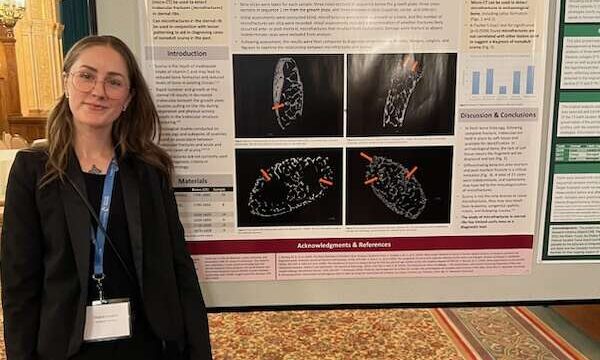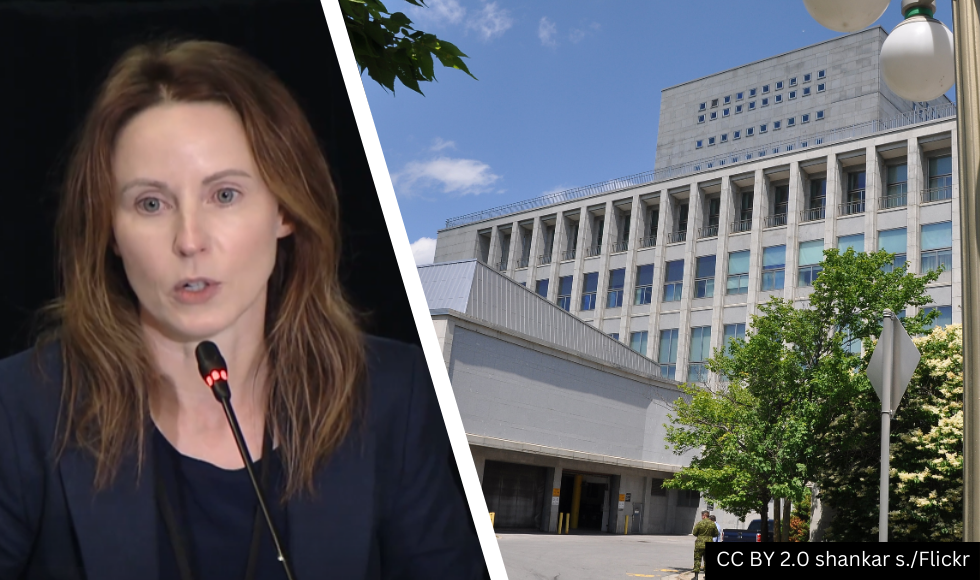Anthropology MA student wins award for scurvy research

Meg Langlois, a second-year MA student in Anthropology was recently awarded the Davidson Black Award for top student poster at the annual meeting of the Canadian Association of Biological Anthropology (CABA-ACAB).
Her research was undertaken as part of the SSHRC Insight Grant project “Integrated approaches paleopathology and paleodiet: Insights into the diet-disease nexus in human health and disease” headed by Dr. Megan Brickley, and focused on whether microfractures, tiny fractures identified in ribs using high resolution computed tomography (µCT) could be used to identify cases of scurvy in those still undergoing growth and development.
Anthropological research into scurvy can help scholars understand past community health and lifeways, including socio-economic stress, access to resources, and dietary patterns. However, the disease results in non-specific lesions on skeletons, meaning it is hard to identify, especially when bones are broken up and scattered across an area, which can be common at archeological sites.
That’s where Langlois’s research comes in. The hope is to find a more reliable method to diagnose scurvy in the past, to add to the existing toolkit.
Langlois’s teamed up with colleagues from McMaster, Montreal, Western, Leiden University and Amsterdam UMC. They assessed nine micro-CT slices from ribs from 80 individuals from two Quebecois collections from the eighteenth and nineteenth centuries, and four collections from the Netherlands from the seventeenth to nineteenth centuries.
The research showed that while the method could be used to identify certain fractures in internal bone structures, the study of microfractures in archaeological bone has limited usefulness as a diagnostic tool.
For now, the attention turns to using micro-CT for assessing structure of new bone formation related to scurvy and the identification of mixed lesions, which are not always visible to the naked eye.
Langlois was thrilled to accept the award, and paid tribute to her co-researchers and the CABA.
“I am honoured to receive this award and the recognition of my colleagues,” said Langlois. “I would like to acknowledge my co-authors and collaborators on this project, and huge thank you to the CABA-ACAB organizers for the opportunity to present our research.”
Departmental NewsRelated News
News Listing

Associate Professor Chelsea Gabel named Tier 1 Canada Research Chair
Awards, Departmental News
7 days ago

Political Science Professor Thomas Marois named Tier 1 Canada Research Chair
Awards, Departmental News
7 days ago

Political Science associate professor Andrea Lawlor testifies at Canadian Commission on Foreign Interference
Departmental News
November 12, 2024
